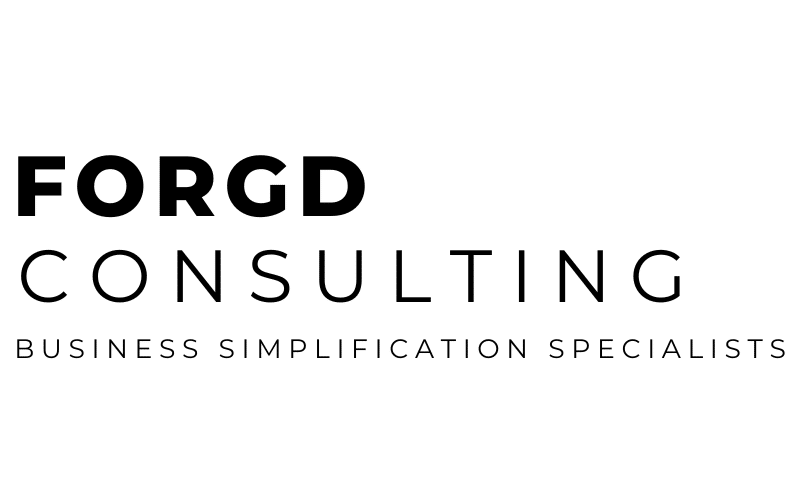
Introduction
In today’s fast-paced business environment, complexity is the enemy of progress. From bloated workflows to outdated systems, inefficiencies don’t just slow businesses down—they cost time, money, and opportunities. But what if you could streamline your operations to focus on what truly matters?
Business simplification is about doing just that. It’s not about doing less but doing better. By simplifying, businesses can save valuable resources and create a solid foundation for growth. This guide will walk you through the basics of business simplification, why it matters, and actionable steps to make it happen.
What is Business Simplification?
At its core, business simplification is the process of reducing operational complexity. This can involve eliminating redundant processes, automating repetitive tasks, or restructuring workflows to make them more efficient. The ultimate goal is to create a business that operates smoothly, saves resources, and delivers value to customers without unnecessary friction.
Examples of Simplification in Action
- A manufacturing company reduces waste by streamlining its production line, cutting time spent on rework by 20%.
- A trades business automates its scheduling system, freeing up an employee who was manually managing bookings.
- A logistics firm maps its delivery routes to eliminate overlaps, saving fuel costs and improving delivery times.
Simplification doesn’t have to be complicated—it’s about identifying what works, cutting what doesn’t, and aligning processes with your business goals. For more insights, check out our article on 5 Simple Ways to Streamline Small Business Operations.
Why Simplification Matters
1. Saves Time
Complex processes often lead to wasted hours—whether through unnecessary approvals, redundant steps, or manual tasks that could be automated. Simplification allows teams to focus on high-value activities, reducing delays and speeding up workflows.
Example: A business owner spending two hours a day manually entering data into spreadsheets switches to a CRM system that handles it automatically. That’s 10 hours a week saved.
For more time-saving tips, explore How to Save Time with Better Scheduling Tools.
2. Cuts Costs
Inefficiencies drain profits. Whether it’s overtime costs, duplicated work, or missed deadlines, complexity has a real financial impact. Simplification helps businesses reduce these costs without sacrificing quality.
Example: A construction company audits its procurement process and switches to bulk purchasing for frequently used materials, saving 15% on costs.
Learn more in our guide on Top 5 Ways to Cut Costs Without Compromising Quality.
3. Drives Growth
Simplification creates the capacity for growth by freeing up resources. With streamlined operations, businesses can focus on scaling their offerings, improving customer satisfaction, and exploring new markets.
Example: A small engineering firm standardises its quoting process, allowing it to handle a 30% increase in client inquiries without hiring additional staff.
4. Boosts Team Productivity
When processes are clear and straightforward, employees can work more effectively. This improves morale, reduces burnout, and ensures tasks are completed on time and to a high standard.
Example: A trades business introduces a standardised checklist for on-site jobs, reducing errors and improving completion rates.
Explore how simplification impacts morale in How Leadership Shapes Business Simplification Efforts.
Steps to Simplify Your Business
1. Identify Bottlenecks
Start by mapping out your current workflows. Ask yourself: Where do delays happen? What steps feel redundant or unnecessary?
How to Get Started:
- Use tools like Lucidchart to visualise your workflows.
- Involve your team in identifying pain points—they often have firsthand insights.
- Prioritise bottlenecks that have the most significant impact on time or costs.
2. Automate Repetitive Tasks
Automation is one of the most effective ways to simplify operations. By letting software handle repetitive tasks, you can save time, reduce errors, and focus on strategic goals.
Examples of Automation:
- Use Xero for invoicing and payroll.
- Leverage Zapier to connect apps and automate workflows.
- Implement scheduling tools like Calendly to eliminate back-and-forth emails.
Pro Tip: Not all tasks need automation. Focus on repetitive, time-consuming processes where automation adds real value.
3. Streamline Workflows
Eliminate unnecessary steps, reduce touchpoints, and ensure your workflows are aligned with your business goals.
How to Streamline:
- Audit one workflow at a time, starting with the most critical.
- Reduce approvals where possible—simpler hierarchies lead to faster decision-making.
- Introduce clear accountability to avoid duplicating efforts.
4. Regularly Review Processes
Simplification isn’t a one-time project—it’s an ongoing commitment. As your business evolves, so do your processes. Regular reviews ensure your workflows remain efficient and effective.
Tips for Reviews:
- Schedule quarterly process reviews to identify inefficiencies.
- Involve your team to gain fresh perspectives.
- Look for new tools and technologies that can enhance efficiency.
How Forgd Consulting Can Help
Simplification doesn’t have to be overwhelming. At Forgd Consulting, we help businesses identify inefficiencies and implement practical, no-nonsense solutions that save time, cut costs, and deliver measurable results.
Our Simplification Kick-Start is a free, 60-minute session to identify the biggest time and money wasters in your operations. From there, our Simplification Roadmap provides a clear, actionable plan to fix them.
Learn more about the Kick-Start here or discover how the Roadmap can transform your business here.
Conclusion
Simplifying your business isn’t just about saving time and cutting costs—it’s about creating an environment where your team can thrive, your operations can run smoothly, and your business can grow sustainably.
Start small. Focus on the areas that matter most. And remember, simplification is a journey, not a destination.
Ready to take the first step? Book your free Simplification Kick-Start today and see the difference Forgd Consulting can make.

